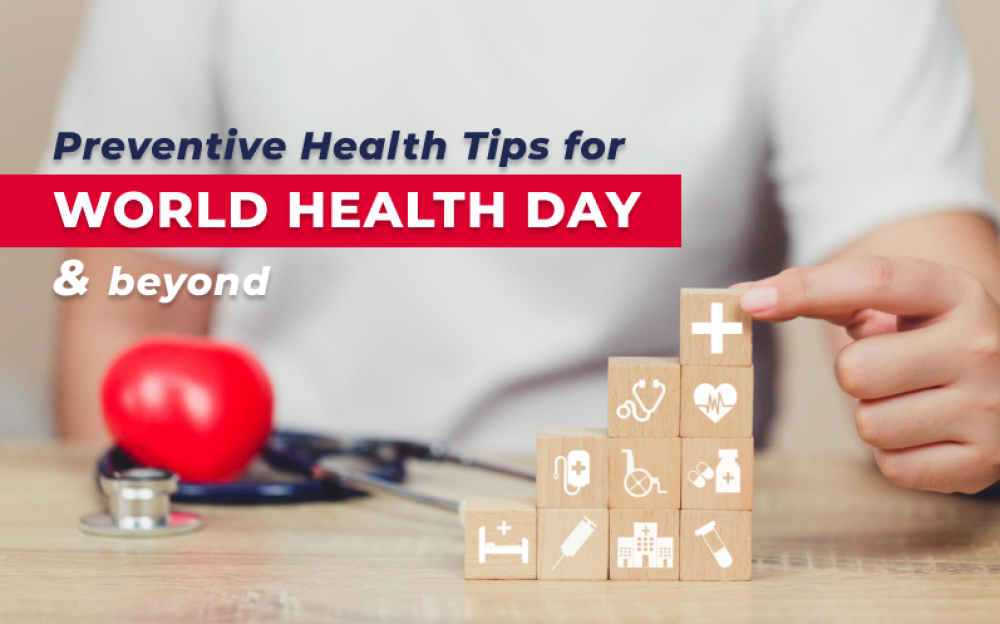Every year on April 7th, the World Health Organization (WHO) spearheads World Health Day to raise awareness about a specific health issue. While the annual themes address critical concerns, the fundamental message of prioritizing preventative health remains constant. This blog empowers you to be proactive about your well-being. By incorporating these simple yet effective preventive measures, you can celebrate good health not just on World Health Day, but every day!
The Power of Prevention:
Traditionally, healthcare focuses on treating illnesses after they arise. However, preventative health emphasizes taking proactive steps to avoid illness and disease in the first place. This approach offers significant benefits, including:
- Early Detection: Preventive measures like regular checkups and screenings can detect potential problems early, leading to better treatment outcomes.
Reduced Chronic Disease Risk: By adopting healthy habits like a balanced diet and regular exercise, you can significantly lower your risk of developing chronic conditions like heart disease, diabetes, and certain cancers.
- Enhanced Well-being: A preventative approach fosters a more empowered state of mind. You'll feel better equipped to manage your health and prevent future issues.
Simple Steps for a Healthier You:
Fuel Your Body Right:
- Prioritize a Balanced Diet: Focus on fruits, vegetables, and whole grains for essential nutrients.
- Limit Unhealthy Options: Reduce processed foods, sugary drinks, and unhealthy fats.
- Stay Hydrated:
Drink plenty of water throughout the day to stay energized and support bodily functions.
- Move Your Body: Aim for Regular Exercise: Strive for at least 150 minutes of moderate-intensity exercise or 75 minutes of vigorous-intensity exercise per week.
- Find Activities You Enjoy: Make exercise fun by choosing activities you like, such as dancing, swimming, or brisk walking.
- Incorporate Strength Training: Include strength training exercises at least twice a week to build muscle and improve overall fitness.
Prioritize Sleep:
- Aim for Quality Sleep: Get 7-8 hours of quality sleep each night for optimal physical and mental functioning.
- Establish a Sleep Schedule: Go to bed and wake up around the same time each day to regulate your sleep-wake cycle.
- Optimize Your Sleep Environment: Create a relaxing bedtime routine and ensure your bedroom is dark, cool, and quiet.
Manage Stress:
- Find Healthy Coping Mechanisms: Develop healthy ways to manage stress, such as yoga, meditation, or spending time in nature.
- Set Realistic Boundaries: Learn to say no when needed to avoid feeling overwhelmed.
- Prioritize Relaxation: Develop healthy coping mechanisms for dealing with daily pressures.
Schedule Regular Checkups:
- Maintain a Relationship with Your Doctor: Schedule regular checkups and screenings as recommended by your doctor.
- Open Communication: Discuss any health concerns you have and proactive measures you can take.
- Stay Up-to-Date: Get vaccinated according to the recommended schedule to prevent infectious diseases.
Conclusion:

